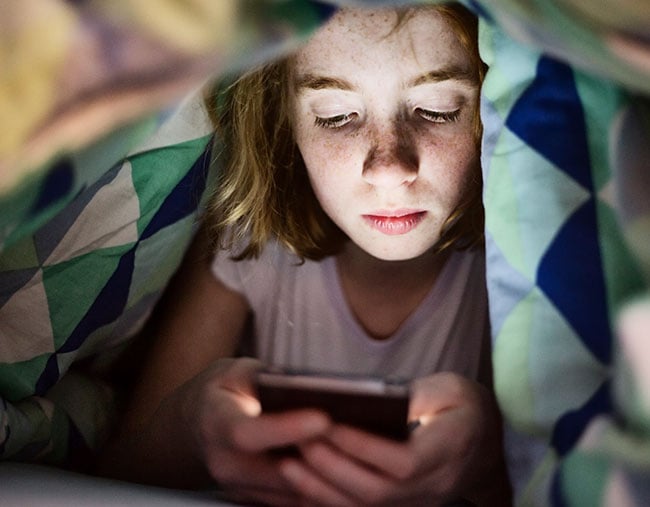
The internet can be a scary place for parents.
Sixty per cent of mums and dads say they’re concerned their child is exposed to risks online, including contacting strangers, accessing inappropriate content and being the victim of bullying. That’s according to a survey by Australia’s eSafety commissioner.
While we don’t want to make anyone more alarmed than they already are, there are a number of apps cyber safety experts warn that parents should be wary of.
If your child or teen has any of these apps on their phone or tablet, you might want to consider deleting them, or monitoring their use.
Omegle
Omegle is an app that’s designed to allow strangers to chat or video-chat with each other anonymously. If that doesn’t already sound like an invitation for predators, the app’s website explicitly says as much.
“Omegle (oh·meg·ull) is a great way to meet new friends,” the website explains. “When you use Omegle, we pick someone else at random and let you talk one-on-one. To help you stay safe, chats are anonymous unless you tell someone who you are (not suggested!), and you can stop a chat at any time. Predators have been known to use Omegle, so please be careful.”
Advice for what you should and shouldn’t tell your child if they’re being bullied. Post continues.

Top Comments
Who gives a young child a phone anyways?
I’ve never heard of Sarahah until now, and I’m wondering what the point of it is altogether. As you say, an app like this just seems made to be nasty, no matter how old you are. The only ‘nice’ reason I can think of to use it is if you know someone with bad breath or b.o. and you want to tell them privately without embarrassing them. Anything else just seems hugely mean.
There are a couple here I didn’t know about & I figured I was quite “with it”